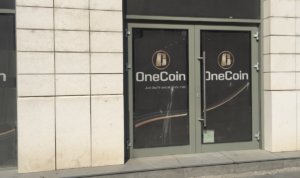OneCoin co-conspirator pushes for acquittal
Mark Scott argues there was no testimony by any witness that he had anything to do with OneCoin sales, much less in the United States.

Mark Scott, a defendant in a lawsuit targeting individuals involved in fraudulent cryptocurrency scheme OneCoin, is seeking acquittal. This becomes clear from documents filed with the New York Southern District Court on February 4, 2020.
As FinanceFeeds reported back in November, Mark Scott was convicted of conspiracy to commit money laundering and conspiracy to commit bank fraud. Scott, a former equity partner at the law firm Locke Lord LLP, laundered approximately $400 million in proceeds of OneCoin through fraudulent investment funds that he set up and operated for that purpose. Scott was paid more than $50 million for his money laundering services, which he used to buy luxury cars, a yacht, and several seaside homes.
In his motion for acquittal and the accompanying memorandum, Scott stresses that only two of the 17 Government witnesses had met him before his arrest, and each of them only once. According to Scott, the evidence adduced through these witnesses and others was insufficient to support a conviction of on either count.
Scott notes the Government’s evidence that OneCoin was engaged in any sort of illegal activity rested almost entirely on the testimony of cooperating witness Konstantin Ignatov, the brother of OneCoin founder Ruja Ignatova. Ignatov testified that at the time of his sister’s disappearance in October 2017 he believed that both the OneCoin blockchain, a hallmark feature of a genuine cryptocurrency, and an audit of the OneCoin blockchain, were real. He also testified that despite working at the OneCoin headquarters for years, he only learned definitively that OneCoin was not a genuine cryptocurrency when he heard Irina Dilkinska speak to that effect in May 2018. He further testified that OneCoin’s lack of a functioning blockchain was a closely guarded secret – only Ruja Ignatova, and OneCoin’s two IT employees were aware that the supposed “blockchain” was an elaborate fraud.
The Government’s evidence that OneCoin activities extended into the United States was extremely limited, Scott argues. He adds that Ignatov, the Government’s only cooperating witness, said nothing of any OneCoin activities in the United States. To show any contact with the U.S. whatsoever, the Government relied almost entirely on the testimony of two individuals who purchased OneCoin, William Horn and Linda Cohen, Scott says. Neither Horn nor Cohen ever met Scott or had any knowledge of him whatsoever.
According to Scott, the Government provided no evidence that funds that Cohen and Horn invested in OneCoin were transferred to the Fenero Funds.. Likewise, according to Scott, the Government failed to show that funds from any United States residents, were transferred into any accounts Scott maintained or to which he had access.
Scott argues that there was no testimony by any witness that (1) Scott had anything to do with OneCoin sales, much less sales in the United States or (2) that Scott had any belief that OneCoin was violating any criminal laws.
According to Scott, the Government’s own evidence establishes that OneCoin was an operation run by people outside the United States and that its product was sold almost entirely to individuals outside the United States. Such incidental ties to the United States are insufficient under the wire fraud statute, and without a U.S. wire fraud, the funds at issue are not subject to the money laundering statute at all, Scott insists.
Moreover, according to Scott, the jury instructions on both the bank fraud and money laundering counts were wrong on key points, permitting the jury to convict him based on conduct that would not violate the statutes in question. Even if the Government had provided sufficient proof of the charged offenses a new trial would be required to cure these instructional errors, the defendant says.
The lawsuit continues at the New York Southern District Court.









